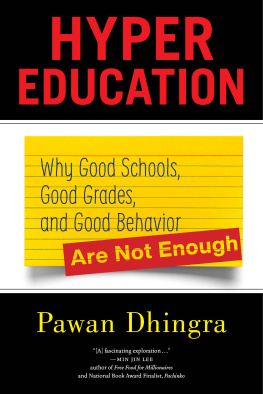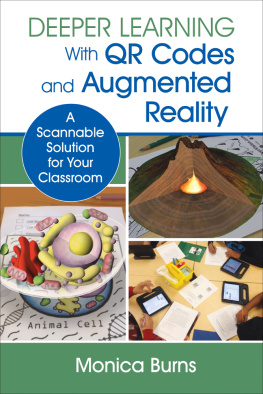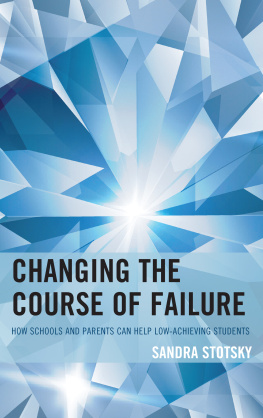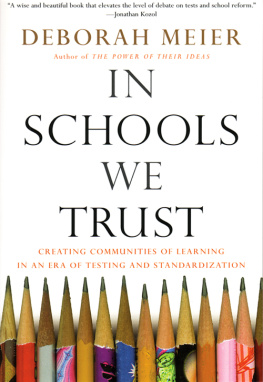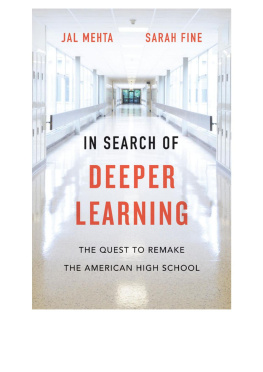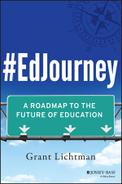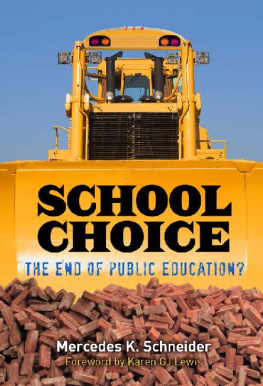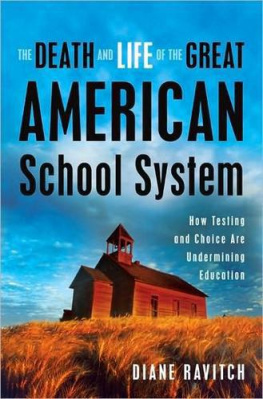DEEPER LEARNING


2014 by Monica R. Martinez and Dennis McGrath
All rights reserved.
No part of this book may be reproduced, in any form, without written permission from the publisher.
Requests for permission to reproduce selections from this book should be mailed to: Permissions Department, The New Press, 120 Wall Street, 31st floor, New York, NY 10005.
Katherine Ellison, author of Square Peg: My Story and What It Means for Raising Innovators, Visionaries, and Out-of-the-Box Thinkers, assisted in the writing and editing of this book.
Published in the United States by The New Press, New York, 2014
Distributed by Perseus Distribution
ISBN 978-1-59558-994-1 (e-book)
CIP data available.
The New Press publishes books that promote and enrich public discussion and understanding of the issues vital to our democracy and to a more equitable world. These books are made possible by the enthusiasm of our readers; the support of a committed group of donors, large and small; the collaboration of our many partners in the independent media and the not-for-profit sector; booksellers, who often hand-sell New Press books; librarians; and above all by our authors.
www.thenewpress.com
Book design and composition by Bookbright Media
This book was set in Adobe Garamond
Printed in the United States of America
10 9 8 7 6 5 4 3 2 1
CONTENTS
DEEPER LEARNING
Most policymakersand many school administratorshave absolutely no idea what kind of instruction is required to produce students who can think critically and creatively, communicate effectively, and collaborate versus merely score well on a test. They are also clueless about what kind of teaching best motivates this generation to learn.... We need more profiles of quality instruction... to inform the education debate.Tony Wagner, Creating Innovators: The Making of Young People Who Will Change the World
STATIC SCHOOLS IN A CHANGING WORLD
In his classic 1968 study of daily life in classrooms, Philip W. Jackson wrote that students spend as much as 50 percent of their time waiting for something to happen.American students are still waiting. Theyre waiting for all of the old reasons, and one relatively new one: today, theyre also waiting for our education system to catch up with their lives.
While much of society has changed radically in the twenty-first century, the vast majority of the U.S. public school systemencompassing approximately 133,000 individual schoolsstill clings to early twentieth-century practices. Teachers lecture while standing in front of rows of desks, students take notes with pencils and lug heavy books, and both groups expect students to memorize content more often than to learn or practice new skills. In general, students are trained to act as followers, not leaders. Its almost as if the digital ageand the attendant changes to the world that came with ithad never happened. Until, of course, its time to venture beyond school walls. At that point, far too many of them find out theyre unprepared.
TIME FOR A CHANGE
Throughout the United States, several million middle and high school students are caught in the disconnect of living in a twenty-first century world while attending twentieth-century secondary schools. These digital natives have grown up in a time when communication is instant, memory is outsourced, and job security is a story told by old fogeysand yet their schools remain focused on preparing them for futures more relevant to days gone by. As the Harvard-based thought leader Tony Wagner warns, todays world doesnt just care about what you know, but what you do with what you know.to think critically, collaborate, and work independently. To date, however, relatively few U.S. secondary schools are designed with these skills in mind.
Wagner and other education experts argue that fixing this problem will require a wholesale transformation of secondary education as we know it. Todays students need much less passive rule following and rote memorization, and much more guidance and support in becoming self-directed learners who are able to take initiative and apply what they learn to a variety of different situations. Above all, they need better preparation to be engaged citizens who survive and thrive in college and in their careers.
As this vision of change has gained clarity and adherents, several names for the shared goals have emerged. Some speak of college and career readiness. Others refer to twenty-first-century skills. Still others have adopted phrases including cognitive and noncognitive skills, linked learning, and higher-order thinking.
The expression we like best is a simple one: Deeper Learning. We chose it not only for its simplicity, but because it fully encompasses the educational goals that, taken together, constitute the foundation for developing the single most important ability students should possess: the capacity for learning how to learn. In an ever-changing worldone in which knowledge and its applications have the potential to shift almost dailynothing is more valuable.
More specifically, Deeper Learning is the process of preparing and empowering students to master essential academic content, think critically and solve complex problems, work collaboratively, communicate effectively, have an academic mindset, and be self-directed in their education.of these are vital components of Deeper Learning, we cannot emphasize enough the importance of the final element on this list: self-direction. Students who are empowered to be the leaders of their own educational lives are capable of embodying a desire to learn unmatched by any that could be instilled by a parent or teacher.
Already there are some five hundred schools in the United States that embrace varying strategies for achieving these ends. Some incorporate ideas that have been influencing parts of school systems for many decades, including practices referred to today as inquiry-based and project-based learning, and others choose approaches of more recent origin, such as novel ways to integrate cutting-edge information technologies.
The ambitions behind Deeper Learningprimarily to create more independent, self-directed thinkers, better prepared to cope with the modern demands of college, the work force, and the world at largeare broadly popular. Nonetheless, the schools that have truly managed to exemplify them still represent a tiny minority of the American education system at a time when the need for bold change is ever more urgent.
A NATION AT RISK?
With the intention of avoiding unproductive finger-pointing, its important to note that this Deeper Learning movement is emerging at a time of profound concern on the part of innumerable stakeholdersparents, advocates, educators, and countless othersthat a great many U.S. schools are failing our youth and that decades of attempts to fix the problem
To be sure, complaints about the state of schools are nothing new. Both smart and baseless criticisms and reforms date as far back as the 1820s, and some critics charge that todays calls of crisis are dangerously overblown.
This fear bolstered the Accountability Movement of the 1990s that was followed by the No Child Left Behind Act of 2001, which increased the focus on standardized testing and low-performing schools. Eight years later came the $4.35 billion Race to the Top initiative, the signature education effort of the Barack Obama administration, which called for comprehensive education reform through the promise of more support for new and better innovations with regard to standards, teacher quality, data systems, and turning around struggling schools.
Next page

